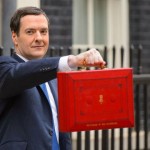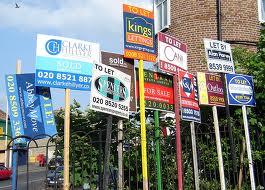 Boost for first-time buyers as buy-to-let landlords’ profits are slashed in crackdown on mortgage interest tax relief. Thousands of buy-to-let landlords will see their earnings hit after George Osborne cracked down on mortgage interest tax relief in his summer Budget. These were the headlines but the reality is a bit different.
Boost for first-time buyers as buy-to-let landlords’ profits are slashed in crackdown on mortgage interest tax relief. Thousands of buy-to-let landlords will see their earnings hit after George Osborne cracked down on mortgage interest tax relief in his summer Budget. These were the headlines but the reality is a bit different.
Whilst the proposals are a welcome start to end the unfair tax relief enjoyed by buy to let landlords, nothing is going to change any time soon. The Mañana Chancellor ,George Osborne hits buy to let landlords in his latest Budget – but not until April 2017 and even then the measure will be phased in over four years! This is to give landlords time to “sort out their affairs.” More likely, it will enable many UK landlords to side-step the new measure by choosing to own properties through corporate structures to continue to benefit from relief on mortgage interest payments with lower corporation tax, cut to 18% by 2020, another incentive according to mortgage brokers.
In the budget, tax relief for landlords on mortgage interest payments is to fall and they will only be able to claim the basic rate 20% tax relief on mortgage interest payments rather than 45%, or their highest rate. The Chancellor said the move will “level the playing field for homebuyers and investors”. The current tax break for landlords is estimated to cost the Treasury £6.3billion every year a Freedom of Information request revealed.
George Osborne said he wanted to support homeownership but “act in a proportionate and gradual way.”
He said “Mortgage Interest Relief was withdrawn from homeowners 15 years ago. However, landlords still receive the relief. The ability to deduct these costs puts investing in a rental property at an advantage. Tax relief for finance costs is particularly beneficial for wealthier landlords with larger incomes, as every £1 of finance cost they incur allows them to pay 40p or 45p less tax.”
 Some experts have warned that landlords may hike rents for tenants to compensate whilst others suggest the market will dictate the level of rent attainable. However it is widely accepted that this can only be good news for first-time buyers in property market with limited supply by making homes more affordable over time as buy to let demand diminishes. Currently there are 2 million private landlords, up from 600,000 since 2008. In 2000, less than 2% of mortgages were buy to let, today landlords can choose from over 900 ‘Buy to Let’ mortgages, accounting for 15% of all home loans.
Some experts have warned that landlords may hike rents for tenants to compensate whilst others suggest the market will dictate the level of rent attainable. However it is widely accepted that this can only be good news for first-time buyers in property market with limited supply by making homes more affordable over time as buy to let demand diminishes. Currently there are 2 million private landlords, up from 600,000 since 2008. In 2000, less than 2% of mortgages were buy to let, today landlords can choose from over 900 ‘Buy to Let’ mortgages, accounting for 15% of all home loans.
The budget document has also revealed the current system that allows landlords to claim 10% of their rent for ‘wear and tear’ will also be scrapped. From next April, landlords will only be able to deduct the actual costs for repairs, maintenance and replacements as they arise.
The fuse has now been well and truly lit on the Buy to Let time-bomb.
However, people who rent out a room in their home to be able to earn £7,500 tax-free. The Chancellor also announced an increase in the amount of money homeowners can earn in rent from lodgers before tax. It comes after many campaigned for a higher earning level in the rent-a-room scheme. The level has been set at £4,250 of income for the past 18 years, but will rise to £7,500 from April 2016.





